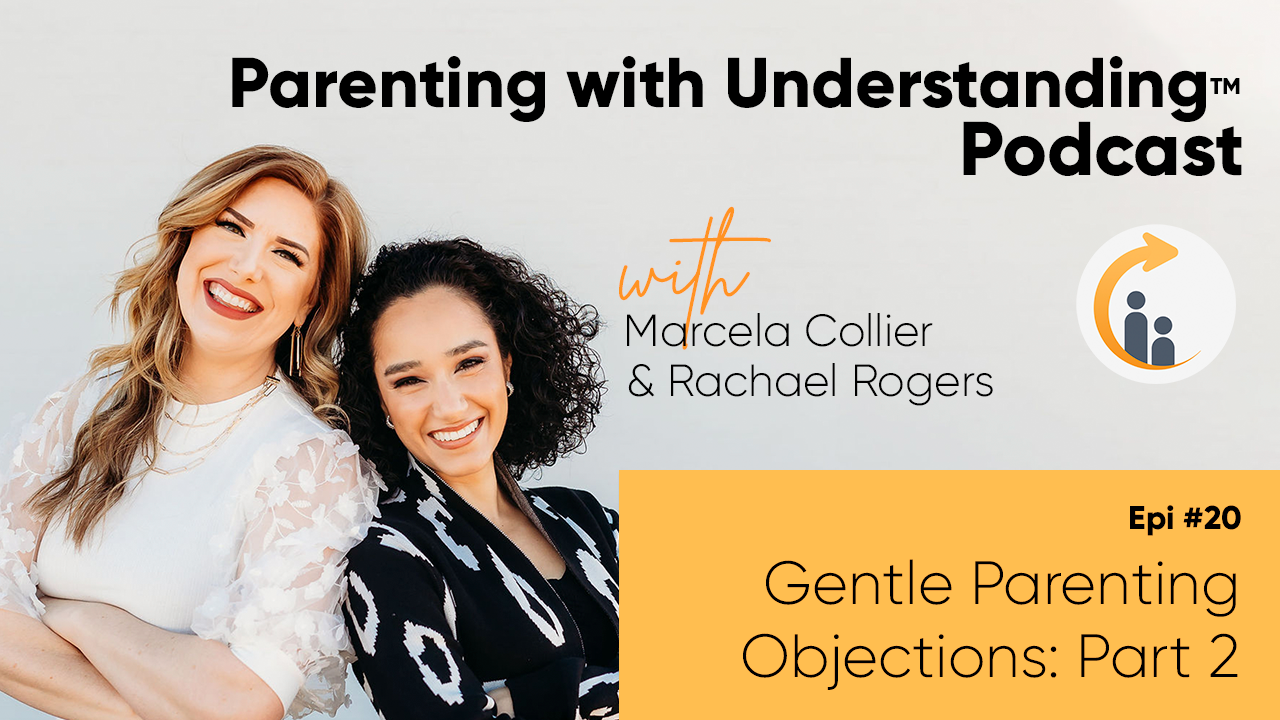Epi #20: Gentle Parenting Objections: Part 2
Aug 09, 2022
Gentle Parenting Objections: Part 2
Throughout the month of August, Rachael and I will be discussing some of the many objections towards gentle parenting. Last week, we touched on misconceptions about how we discipline our children. This week, we’re covering what skeptics of this parenting style think our kids will grow up to be. Spoiler: it’s all negative…from weak, vulnerable “snowflakes” to unhinged mass murderers!
It’s our hope that today’s episode dismantles these unreasonable portrayals.
Here are some rebuttals about gentle parenting and our counter-arguments:
No Discipline = Entitlement or Aggression: Contrary to popular belief, gently parented kids are disciplined by upholding boundaries with love and understanding. Actually, most people who commit heinous acts are usually those who were parented by very strict, authoritarian parents who used corporal punishment as their primary discipline tactic, causing trauma.
Gentle-Parenting Is Too “New” to Know Long-term Effects/Benefits: Did you know that, while the term “gentle-parenting” is relatively new, books, studies, and other resources about positive-parenting have been in circulation since the early 2000s? For example, a 2002 study by Bornstein found that children and teens who had emotional regulation modeled to them by their primary caregivers were more likely to better regulate their own emotions, as well. The same study also showed that when kids are involved in the decision-making process of rules and guidelines, they’re more likely to comply with requests and demonstrate self-regulation.
Tough-Love is Necessary to Survive This Tough World: A 2008 study, Developmental Parenting: A Guide for Early Childhood Practitioners, by Roggman, Boise, and Innocenti, found that kids whose parents were affectionate, encouraging, and compassionate towards them were much more likely to show heightened cognitive and social-emotional development, school readiness, more positivity, receptivity for trying new things, better vocabulary, and conversation skills, among other attributes.
Conclusion: Clearly, the research shows that gently-parented children and teens are well-equipped to handle the “real world”, so much so, that we dare say that they’ll grow up to be adults who are more than capable of changing the world for the better!
Also, consider this: children and adolescents who have been raised with gentle parenting are more likely to identify red flags in a relationship — platonic, romantic, professional, etc. because they know that love and respect feel safe, encouraging, and free. So, they’ll be able to pick up on something being “off” whenever someone tries to use psychological or emotional abuse tactics on them because those behaviors go against the norm of what they’ve been exposed to at home. They’ll know how to be assertive and will have a healthy self-esteem because they’re secure in who they are, regardless of anything negative that’s been spoken over them. This is how they turn out and it’s priceless!
Now, imagine knowing how to reply to your children when emotions run high (for you and them). HIC offers an E-Book, The Considerate Conversation Formula, a simple, 5-step method to help kids go from chaos to calm by knowing how to respond when they’re experiencing strong emotions. It’ll assist you in talking to them to identify their underlying needs, meeting those needs, and addressing and correcting their behaviors throughout their childhood and teenage years! It’s accessible by clicking the following link:
Click Here To Get The Considerate Conversation Formula E-Book



